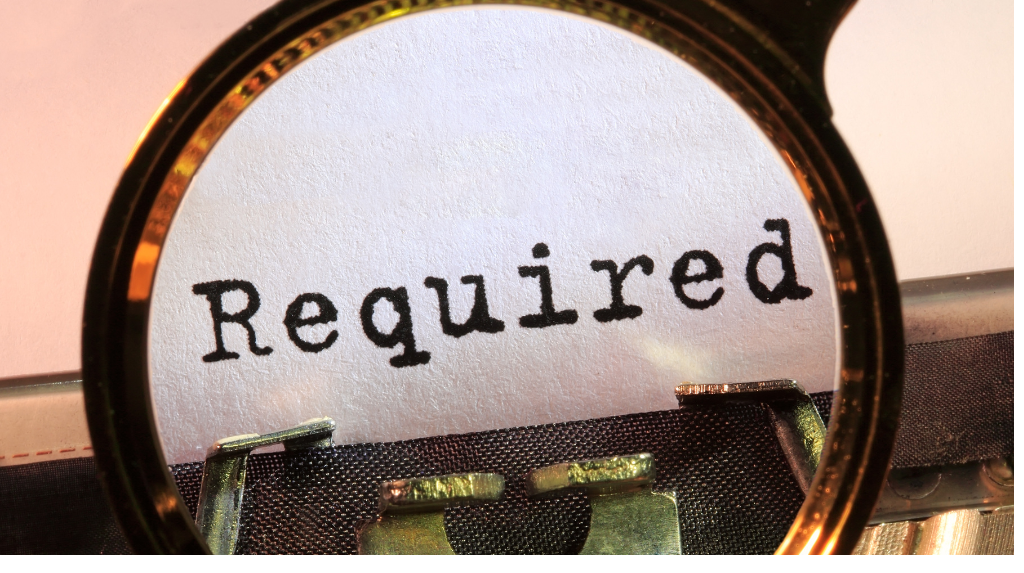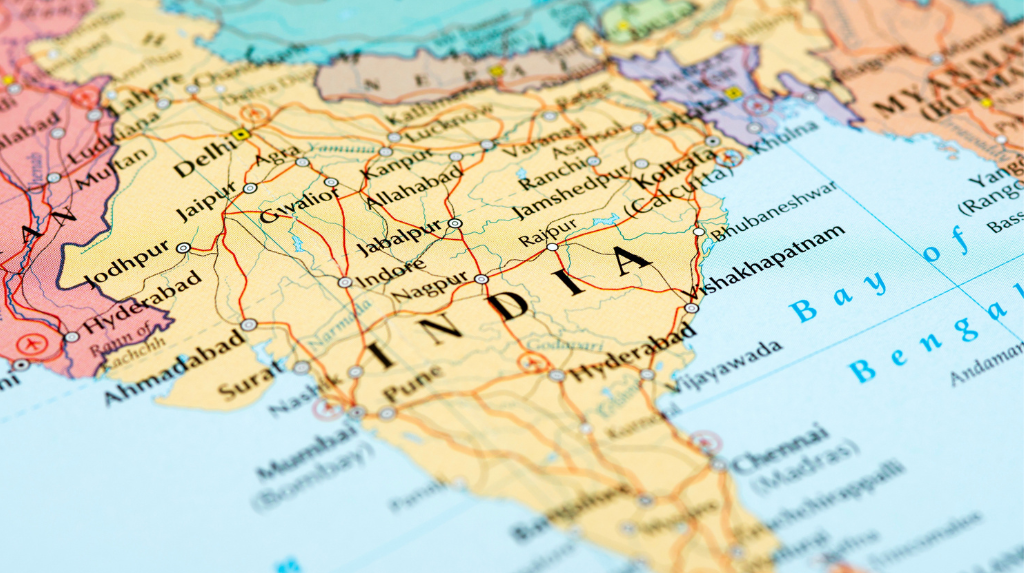Traveling to India is an exciting prospect for many individuals around the world. Whether it’s for tourism, business, or education, obtaining an Indian visa is often a necessary step. However, there are instances when visa applications are rejected, leaving applicants disappointed and wondering about the reasons behind the Indian visa rejection rate. In this article, we will delve into the factors that contribute to visa rejections and explore potential solutions for improving the acceptance rate.
Understanding the Indian Visa Application Process
Before delving into the factors that contribute to the Indian visa rejection rate, it’s essential to have a basic understanding of the Indian visa application process. The Indian government offers various types of visas, including tourist visas, business visas, student visas, and more. Each visa category has specific requirements and documentation.
Applicants are generally required to fill out an online application form, submit supporting documents, pay the application fee, and, in some cases, attend an interview at the respective Indian embassy or consulate. The decision on whether to grant a visa lies with the Indian immigration authorities, who carefully review each application based on the provided information and supporting documents.
Factors Influencing the Indian Visa Rejection Rate
Incomplete or Inaccurate Documentation
One of the primary reasons for visa rejection is incomplete or inaccurate documentation. It is crucial to provide all the required documents in the prescribed format and ensure that they are up to date. Missing or incorrectly filled forms, expired passports, or insufficient supporting documents can lead to visa denials.
Previous Visa Violations or Overstays
If an applicant has violated visa regulations or overstayed their previous visits to India, it can significantly impact their chances of obtaining a visa in the future. Consistent adherence to visa rules and regulations is essential for a positive visa outcome.
Criminal Records and Security Concerns
Applicants with a history of criminal offenses or security concerns may face visa rejection. Background checks are conducted, and any past criminal records or security risks can lead to the denial of a visa application.
Insufficient Financial Resources
Demonstrating adequate financial resources to cover the expenses during the visit is crucial for a successful visa application. Lack of financial capability may raise concerns about the applicant’s ability to sustain themselves while in India.
Lack of Strong Ties to the Home Country
A strong connection to the home country is an essential factor in visa approval. Applicants need to demonstrate that they have significant ties, such as employment, family, property, or other commitments, that would motivate their return to their home country after the visit to India.
Health and Medical Issues
Serious health issues or medical conditions that may require extensive medical treatment during the visit can lead to visa rejection. It is advisable to address any health concerns adequately and provide supporting documentation, such as medical certificates or travel insurance coverage.
Purpose of Visit and Travel Itinerary
The purpose of the visit plays a significant role in the visa approval process. It is crucial to clearly state the purpose of the visit and provide a detailed travel itinerary, including accommodation details, intended activities, and places to be visited.
Political or Diplomatic Tensions
Political or diplomatic tensions between countries can impact the visa approval rate. During such periods, visa applications may be subject to stricter scrutiny, and the rejection rate may increase.
Inadequate Travel Insurance Coverage
Travel insurance coverage is vital for visa approval, especially for long-term visits or visits that involve high-risk activities. Inadequate or insufficient travel insurance coverage can raise concerns and lead to visa rejection.
Inconsistencies or Contradictions in Application
Inconsistencies or contradictions in the application form or supporting documents can raise suspicions and lead to visa denial. It is essential to double-check all the provided information for accuracy and consistency.
Age and Marital Status
Certain visa categories may have specific age restrictions or considerations. Additionally, marital status can sometimes influence the visa approval decision, especially for dependent visas.
Miscellaneous Factors
There may be various other factors that can contribute to the Indian visa rejection rate, including inadequate justification for the visit, lack of proper authorization or sponsorship, incomplete visa fee payment, or failure to comply with specific visa requirements.
Tips to Increase Your Chances of Visa Approval
While the visa application process can be daunting, there are several steps you can take to increase your chances of visa approval:
Prepare a Thorough and Accurate Application: Carefully fill out the application form, providing all the required information accurately.
Provide Sufficient Supporting Documents: Ensure you submit all the necessary supporting documents, including passports, photographs, bank statements, travel itineraries, and other relevant paperwork.
Demonstrate Strong Ties to Your Home Country: Clearly showcase your ties to your home country, such as employment letters, property ownership documents, or family-related documents.
Show Proof of Financial Capability: Provide evidence of sufficient funds to cover your travel expenses, including bank statements, income certificates, or sponsorship letters.
Be Transparent and Consistent in Your Application: Avoid providing conflicting information or hiding any relevant details. Consistency and transparency are key.
Seek Professional Assistance, if Needed: If you find the visa application process complex or overwhelming, consider seeking assistance from professional visa consultants or immigration lawyers.
Follow the Embassy’s Guidelines and Instructions: Familiarize yourself with the specific requirements and guidelines provided by the Indian embassy or consulate and adhere to them strictly.
Plan Your Trip and Itinerary Carefully: Provide a well-structured travel itinerary that outlines your planned activities, accommodation details, and places to visit during your stay in India.
Purchase Comprehensive Travel Insurance: Obtain comprehensive travel insurance coverage that meets the requirements set by the Indian immigration authorities.
Be Prepared for an Interview, if Required: Some visa categories may require an interview. Prepare well in advance by researching common interview questions and practicing your responses.
Overcoming Visa Rejection: Appeals and Reapplications
In the unfortunate event of a visa rejection, there are still options available to overcome the rejection:
Understand the Reason for Rejection: Carefully review the rejection letter or communication from the immigration authorities to understand the specific reason for the visa denial. This information will help you address the issue effectively.
Seek Professional Advice: If you believe the rejection was unjust or if you are unsure about the reason behind it, consider consulting an immigration lawyer or visa consultant. They can provide valuable guidance and assistance in navigating the appeals process.
Lodge an Appeal: In some cases, applicants have the option to lodge an appeal against the visa rejection. Follow the instructions provided in the rejection letter or contact the embassy/consulate to understand the appeal procedure and submit the necessary documents within the specified timeframe.
Reapply with Improved Documentation: If the rejection was due to inadequate or inaccurate documentation, you can reapply for the visa with improved and complete supporting documents. Take note of the reasons for the previous rejection and address them appropriately in the new application.
Demonstrate Changes in Circumstances: If your circumstances have changed significantly since the previous application, such as increased financial stability, stronger ties to your home country, or improved travel plans, highlight these changes in your new application to strengthen your case.
Remember, each case is unique, and the success of an appeal or reapplication depends on various factors. It is advisable to seek professional guidance to maximize your chances of a positive outcome.
The Indian visa rejection rate can be attributed to various factors, including incomplete documentation, previous visa violations, security concerns, financial insufficiency, and lack of strong ties to the home country. However, by understanding these factors and taking proactive measures, applicants can increase their chances of visa approval.
Thoroughly preparing the visa application, providing accurate supporting documents, demonstrating strong ties to the home country, and complying with the embassy’s guidelines are essential steps in the process. Additionally, seeking professional assistance, when needed, can greatly improve your chances of a successful visa application.
Remember to approach the visa application process with transparency, honesty, and patience. With careful planning, attention to detail, and adherence to the requirements, you can enhance your prospects of obtaining an Indian visa and embark on your desired journey.
FAQs
What is the Indian visa rejection rate?
The Indian visa rejection rate varies depending on several factors. It is difficult to provide an exact percentage as it can change over time. However, by understanding the reasons behind visa rejections and taking appropriate measures, applicants can significantly improve their chances of approval.
What are the common reasons for Indian visa rejections?
Common reasons for Indian visa rejections include incomplete documentation, previous visa violations, security concerns, financial insufficiency, inadequate ties to the home country, health issues, inconsistencies in the application, and political or diplomatic tensions.
Can I reapply for an Indian visa after rejection?
Yes, you can reapply for an Indian visa after rejection. It is essential to understand the reason for rejection, address the issues, and submit an improved application with complete and accurate supporting documents.
Should I seek professional assistance for my visa application?
Seeking professional assistance, such as immigration lawyers or visa consultants, can be beneficial, especially if you find the visa application process complex or if you have concerns about your application. They can provide expert advice, review your documents, and guide you through the process.
How long does it take to process an Indian visa application?
The processing time for an Indian visa application can vary depending on the visa category and the volume of applications received. It is advisable to apply well in advance and check the embassy’s website or contact them directly for the most up-to-date information regarding processing times.
Do you need support with your Indian visa application?
Contact our team of skilled immigration lawyers to discuss your visa and immigration needs.
Call us on +234 812 5505 986 or WhatsApp us at +234 818 1547 085 for immediate assistance with your situation. We are available to assist you in person, over the phone, or online.





